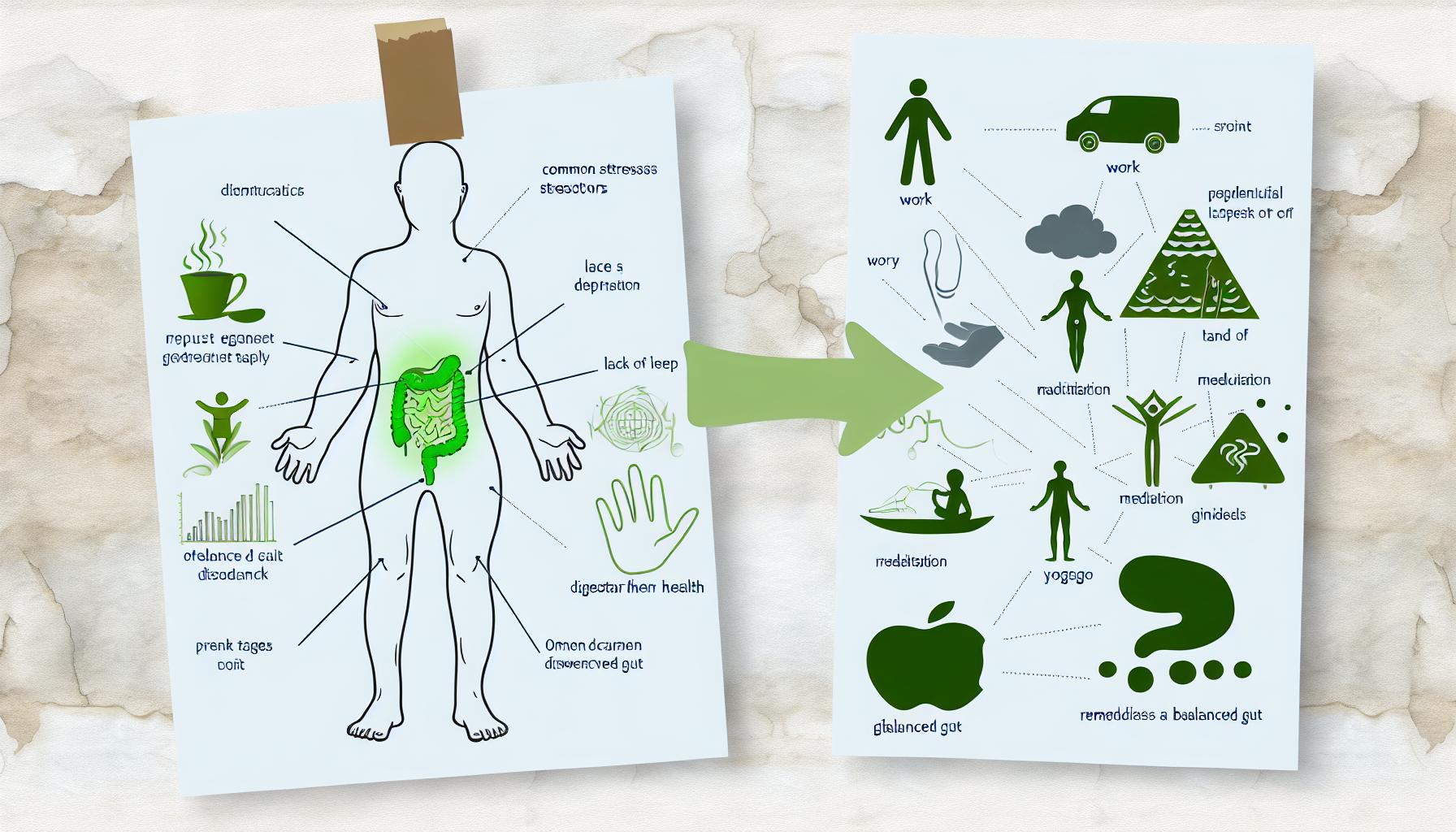.loader { border: 16px solid #f3f3f3; border-top: 16px solid #3498db; border-radius: 50%; width: 120px; height:…

The Impact of Stress on Digestive Health: Strategies for a Balanced Gut.
The Impact of Stress on Digestive Health: Strategies for a Balanced Gut
Stress is an inevitable part of life, but its effects on our health are often underestimated. While most people are aware of the mental and emotional toll that stress can take, many may not realize the impact it can have on our digestive health. In fact, stress is closely linked to a variety of digestive issues, from mild discomfort to more serious conditions like irritable bowel syndrome (IBS) and inflammatory bowel disease (IBD).
When we experience stress, our bodies go into “fight or flight” mode, releasing cortisol and adrenaline to help us respond to the perceived threat. While this response is helpful in the short term, chronic stress can wreak havoc on our digestive system. Here are some of the ways that stress can impact our gut health:
1. **Increased inflammation:** Chronic stress can lead to increased inflammation in the gut, which can contribute to conditions like IBS and IBD.
2. **Imbalanced gut flora:** Stress can alter the balance of bacteria in our gut, which can impact digestion and nutrient absorption.
3. **Slowed digestion:** Stress can slow down the movement of food through the digestive tract, leading to symptoms like bloating, constipation, and diarrhea.
4. **Increased sensitivity:** Stress can make the gut more sensitive to pain and discomfort, worsening symptoms of digestive disorders.
So, what can we do to support our digestive health in the face of stress? Here are some strategies for maintaining a balanced gut:
1. **Practice stress-reducing techniques:** Incorporating stress-reducing techniques like mindfulness meditation, deep breathing exercises, and yoga into your daily routine can help lower cortisol levels and promote overall relaxation.
2. **Eat a healthy diet:** Consuming a diet rich in fiber, fruits and vegetables, and probiotic-rich foods like yogurt and kefir can help support a healthy gut microbiome and improve digestion.
3. **Stay hydrated:** Drinking plenty of water throughout the day can help keep digestion running smoothly and prevent dehydration, which can exacerbate digestive issues.
4. **Get regular exercise:** Regular physical activity can help reduce stress levels and improve overall gut health by promoting proper digestion and bowel movements.
By taking proactive steps to manage stress and support our digestive health, we can help maintain a balanced gut and improve our overall well-being. Remember, if you need further assistance or have any questions, feel free to [contact us](https://lutsiasblog.com/contact) for more information or tips.
Remember, our past blog post on The Importance of Mindful Eating for Improved Digestive Health could provide additional insights on this topic.


Comments (0)